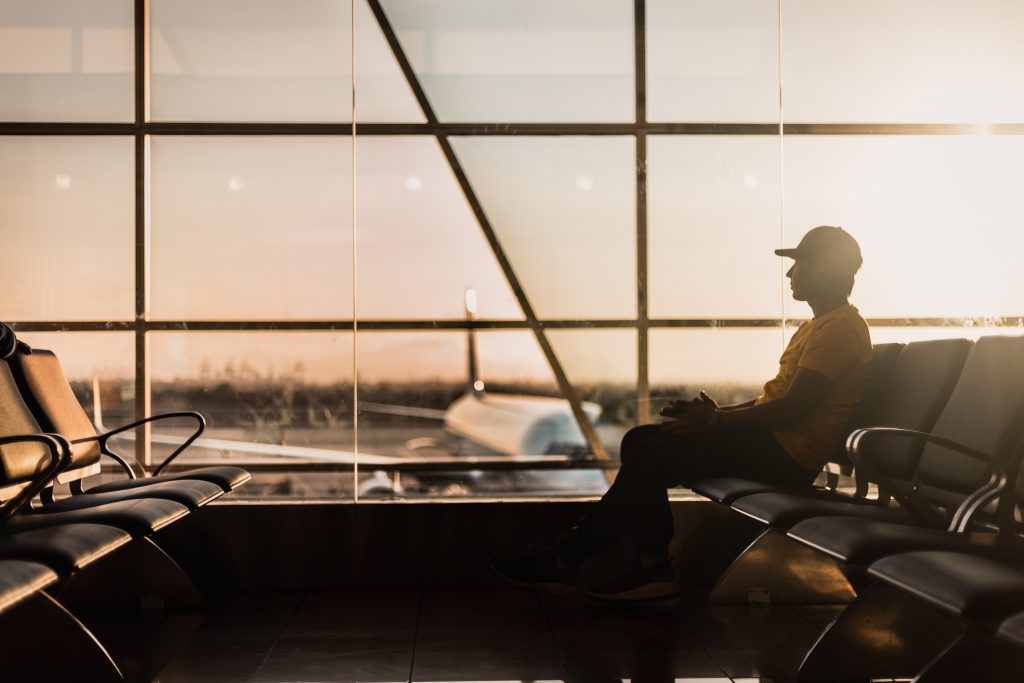
The pandemic has unleashed what some experts have described as a ‘tsunami’ of mental illness. Isolation, fear, uncertainty, the pressures of juggling very different work and home routines (often in the same place), financial pressures, losing loved ones – you name it, COVID-19 has thrown it at us.
Something else it has done is steal away our leisure time. And while things like social isolation, stress and grief might seem to have a more immediate negative impact on our mental wellbeing, experts agree that a lack of ‘downtime’ is unhealthy, too. A case of all work and no play etc.
Whether it is recreational sports, going out for a meal or to socialise with friends, the pandemic has put serious curbs on the things we enjoy. This includes travel.
Not being able to go on holiday and indulge our wanderlust for the past couple of years appears to have brought into focus just how important it is to us.
In a large-scale global survey carried out by Booking.com, a comprehensive 79% of participants said travel had a bigger impact on their mental and emotional health than other forms of self-care. Two thirds (66%) said they didn’t realise just how important going on holiday was to their sense of wellbeing until they couldn’t do it anymore.
We’ve all said ‘I need a holiday’ at one time or another when the stresses and strains of daily life get on top of us. It turns out people have genuine faith in the restorative powers of travel. It makes sense, then, that after all we’ve been through lately, people should be champing at the bit to get away.
But what exactly are people looking to get out of travel in the aftermath of the pandemic, and is it a realistic option in 2022?
According to the Booking.com survey, half of people are looking for the obvious – a break from the routine of home life and work. This comes into sharper focus in the context of the lines between work and home life/leisure time becoming blurred by so many people working from home.
Three quarters (73%) or people make a point of saying holiday time will be strictly work free, perhaps a nod to the fact that work-life balance has been skewed over the course of the pandemic.
Two in five people (40%) say they are looking forward to taking a holiday as an opportunity to spend quality time with family and friends. As we all know, this is something that has been all too difficult for a considerable period of time.
Just under two thirds (60%) also told Booking.com that they were looking forward to enjoying new experiences on their next trip. Variety is the spice of life, as they say, and we’ve all probably gone a little stir crazy spending so much time looking at the four walls of our own homes during the pandemic.
In fact, one in five (18%) expressly said that stepping out of their comfort zone was what helped them reset when they travel, whether that’s seeing new scenery, experiencing a new culture or sampling different cuisines.
But there needs to be a big fat qualification stamped over the top of all this. Yes, travel can be great for our mental and emotional wellbeing. But if travelling itself becomes a cause of stress, doesn’t it defeat the object?
We have to accept that travel is not as straightforward as it was before the pandemic. There are all sorts of loopholes to jump through, from making sure we comply with the entry requirements of our destination to compulsory testing.
There’s a whole lot of uncertainty, too. There’s always the chance of a COVID outbreak forcing us to cancel or delay our travel plans. Test positive before you go and your trip is done for. Test positive while you are there and you face being stuck in quarantine in a foreign country.
People are finding ways to manage the risks and ride with the unpredictability. The findings of the Booking.com survey show that travellers are placing a lot of faith in technology. Two thirds hope that digital information services emerge that can predict which countries will be safe to travel to when they plan their trips and help manage the requirements. 62% say access to the right technology helps to ease any anxiety they have about travelling, while 63% believe it can help manage health risks while they are abroad.
And then there is holiday insurance. Long overlooked by so many holidaymakers as an unnecessary expense, the message about the value and reassurance it offers may finally have got through. Do you really want to risk losing your hotel deposit, air fees or even the full cost of a package holiday if you have to cancel at 24 hours’ notice because of a positive COVID test? Can you afford the bill if you have to quarantine in situ, or if you get seriously ill from COVID and need to pay for hospital treatment?
Travel insurance covers all of that. From the perspective of mental wellbeing, knowing you are not going to take a big financial hit if something goes wrong has to make a difference.
The post You Need a Holiday: Will Travel Be the Cure to Our Pandemic Blues in 2022? appeared first on Travel Experta - Travel, Lifestyle, Freedom.
------------------------------------------
By: Marina Villatoro
Title: You Need a Holiday: Will Travel Be the Cure to Our Pandemic Blues in 2022?
Sourced From: travelexperta.com/you-need-a-holiday-will-travel-be-the-cure-to-our-pandemic-blues-in-2022/
Published Date: Mon, 24 Jan 2022 19:46:20 +0000
Did you miss our previous article...
https://consumernewsnetwork.com/travel-news/2021-lists-this-is-the-finance-investing-markets-edition






